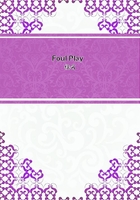
第96章
Hazel considered it attentively a long time. "Too far at sea for living savages," said he. "And yet it cannot be chance. What on earth is it? It looks Druidical. But how can that be? The island was smaller when these were placed here than it is now." He went nearer and examined one of the stones; then he scraped away the sand from its base, and found it was not shaped like a stone, but more like a whale's rib. He became excited; went on his knees, and tore the sand up with his hands. Then he rose up agitated, and traced the outline again. "Great Heaven!" said he, "why, it is a ship."
"A ship!"
"Ay," said he, standing in the middle of it; "here, beneath our feet, lies man; with his work, and his treasures. This carcass has been here for many a long year; not so very long, either; she is too big for the sixteenth century, and yet she must have been sunk when the island was smaller. I take it to be a Spanish or Portuguese ship; probably one of those treasure-ships our commodores, and chartered pirates, and the American buccaneers, used to chase about these seas. Here lie her bones and the bones of her crew. Your question was soon answered. All that we can say has been said; can do has been done; can suffer has been suffered."
They were silent, and the sunk ship's bones moved them strangely. In their deep isolation from the human race, even the presence of the dead brought humanity somehow nearer to them.
They walked thoughtfully away, and made across the sands for Telegraph Point.
Before they got home, Helen suggested that perhaps, if he were to dig in the ship, he might find something useful.
He shook his head: "Impossible! The iron has all melted away like sugar long before this. Nothing can have survived but gold and silver, and they are not worth picking up, much less digging for; my time is too precious.
No, you have found two buried treasures to-day--turtles' eggs, and a ship, freighted, as I think, with what men call the precious metals.
Well, the eggs are gold, and the gold is a drug--there it will lie for me."
Both discoveries bore fruits. The ship: Hazel made a vow that never again should any poor ship lay her ribs on this island for want of warning. He buoyed the reefs. He ran out to White Water Island, and wrote an earnest warning on the black reef, and, this time, he wrote with white on black.
He wrote a similar warning, with black on white, at the western extremity of Godsend Island.
The eggs: Hazel watched for the turtles at daybreak; turned one now and then; and fed Helen on the meat or its eggs, morn, noon and night.
For some time she had been advancing in health and strength. But, when the rains declined considerably, and she was all day in the air, she got the full benefit of the wonderful climate, and her health, appetite and muscular vigor became truly astonishing; especially under what Hazel called the turtle cure; though, indeed, she was cured before. She ate three good meals a day, and needed them; for she was up with the sun, and her hands and feet never idle till he set.
Four months on the island had done this. But four months had not shown those straining eyes the white speck on the horizon; the sail, so looked and longed for.
Hazel often walked the island by himself; not to explore, for he knew the place well by this time, but he went his rounds to see that all his signals were in working order.
He went to Mount Lookout one day with this view. It was about an hour before noon. Long before he got to the mountain he had scanned the horizon carefully, as a matter of course; but not a speck. So, when he got there, he did not look seaward, but just saw that his flagstaff was all right and was about to turn away and go home, when he happened to glance at the water; and there, underneath him, he saw--a ship; standing toward the island.